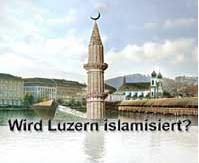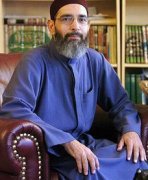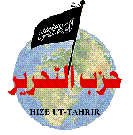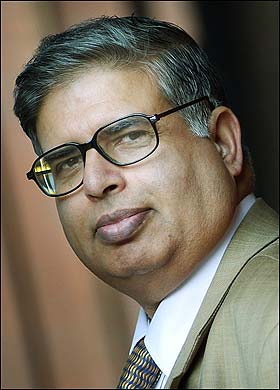 Far right groups in Switzerland have collected enough signatures to force a nationwide referendum on banning minarets, the distinctive towers of Islamic architecture.
Far right groups in Switzerland have collected enough signatures to force a nationwide referendum on banning minarets, the distinctive towers of Islamic architecture.
In what is being seen as a sign of growing Islamophobia in Europe, more than 100,000 Swiss citizens signed a petition to halt the construction of minarets. Under Switzerland’s direct democracy rules, that level of support is enough to trigger a referendum. The Swiss interior ministry today confirmed a vote would take place, without setting a date.
The petition was launched by Ulrich Schlüer an MP from the controversial Swiss People’s party, which was accused of racist campaigning last year. In a bid to get immigrants’ families deported if their children had been convicted of violent crime, the party ran an advertising campaign showing three white sheep on a Swiss flag kicking out a black sheep with the caption: “For more security.”
The president of Switzerland, Pascal Couchepin, said the government would recommend that voters rejected the proposed minaret ban.
The organisers of the petition argue that the minarets, which are used on mosques, are a symbol of political and religious claims to power, not just a religious sign. Schlüer said last year: “We’ve got nothing against prayer rooms or mosques for the Muslims. But a minaret is different. It’s got nothing to do with religion; it’s a symbol of political power.”
If Schlüer’s camp wins the referendum, the Swiss parliament must pass a law enshrining a minaret construction ban in the constitution. Opponents say such a ban would violate religious freedom.
The UN expert on racism, Doudou Diene, has said the campaign is evidence of an “ever-increasing trend” toward anti-Islamic actions in Europe.
See also BBC News, 8 July 2008

 PITTSBURGH — An Islamic nuclear physicist on Thursday accused the U.S. Department of Energy of revoking his security clearance in retaliation for his criticism of the government’s treatment of Muslims.
PITTSBURGH — An Islamic nuclear physicist on Thursday accused the U.S. Department of Energy of revoking his security clearance in retaliation for his criticism of the government’s treatment of Muslims. An internationalist Islamist organisation is submitting an application to the European court tomorrow in an effort to overturn a ban on its activities in Germany. Hizb ut-Tahrir, or the Party of Liberation, believes that the five-year-old ban is unlawful and argues it should be free to campaign in the country and have all frozen assets released.
An internationalist Islamist organisation is submitting an application to the European court tomorrow in an effort to overturn a ban on its activities in Germany. Hizb ut-Tahrir, or the Party of Liberation, believes that the five-year-old ban is unlawful and argues it should be free to campaign in the country and have all frozen assets released. “The Muslim Council of Britain joins human rights groups, a growing body of thinkers and policymakers dealing with our security, together with a large proportion of the British public who oppose the extension of pre-charge-detention. Any further extension of pre-charge detention risks being counterproductive, damaging community relations and undermining the UK’s moral authority around the world. We oppose terrorism in all its forms. We are all concerned about the right to security, free from terror, but this proposal serves to compound the problem, not resolve it.
“The Muslim Council of Britain joins human rights groups, a growing body of thinkers and policymakers dealing with our security, together with a large proportion of the British public who oppose the extension of pre-charge-detention. Any further extension of pre-charge detention risks being counterproductive, damaging community relations and undermining the UK’s moral authority around the world. We oppose terrorism in all its forms. We are all concerned about the right to security, free from terror, but this proposal serves to compound the problem, not resolve it. “Britain’s top Muslim [sic] last night praised Gordon Brown and demanded MPs back new laws to hold terror suspects. Khurshid Ahmed, chairman of the British Muslim Forum, the UK’s largest representative Muslim organisation [sic], called for 42 days’ detention without charge. He said it was vital to protect the nation.”
“Britain’s top Muslim [sic] last night praised Gordon Brown and demanded MPs back new laws to hold terror suspects. Khurshid Ahmed, chairman of the British Muslim Forum, the UK’s largest representative Muslim organisation [sic], called for 42 days’ detention without charge. He said it was vital to protect the nation.”